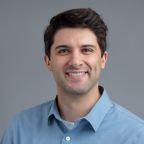New Study Shows Greater Acceptance of the Gay and Lesbian Community Now Than in 1985 but Also Areas Where LGBTQ+ People Still Face Obstacles
For Media Inquiries:
The LGBTQ+ community receives majority support in many areas, though transgender and nonbinary people are viewed more negatively than gay, lesbian, and bisexual people.
CHICAGO, June 6, 2024—A new study from the Los Angeles Times and NORC at the University of Chicago and funded by The California Endowment shows that adults today are more likely to support gay and lesbian people and also more likely to know a gay or lesbian person than they were in 1985. However, LGBTQ+ acceptance is higher among some groups than others, with Democrats, those who know an LGBTQ+ person, and those who are not religious being more accepting.
To better understand how attitudes towards gay and lesbian people have changed in the past four decades, this study replicated several questions from a survey conducted in 1985 by the Los Angeles Times. It found a widespread shift toward greater acceptance. While 67% of adults believed that sexual relations between adults of the same sex was always wrong in 1985, today 64% do not see it as an issue. Similarly, 64% of adults said in 1985 that they would be very upset if they had a gay or lesbian child compared with 14% today.
“The 1985 survey data were an invaluable benchmark for measuring how public opinion towards the gay and lesbian community has shifted over the last 40 years,” said Dan Malato, senior research director in the Public Affairs & Media Research department at NORC. “By also asking new questions about other LGBTQ+ groups, like bisexual, nonbinary, and transgender people, the data are even more powerful in understanding perceptions toward these communities today.”
These new questions show that while many are accepting of other LGBTQ+ groups, transgender and nonbinary people face unique challenges in society. The survey finds that more adults would be upset if they had a transgender or nonbinary child than a gay, lesbian, or bisexual child, and that fewer adults approve of transgender and nonbinary adults living their lives as they wish compared to gay or lesbian adults. The public is also more likely to be resistant to voting for a transgender or nonbinary candidate for Congress compared to a gay, lesbian, or bisexual candidate.
“The survey results consistently highlight the greater challenges that the transgender and nonbinary community face in politics, health care, and daily life compared to gay, lesbian, and bisexual people,” said David Lauter, who oversaw the development of the poll as senior editor at the Los Angeles Times. “These challenges toward acceptance were particularly acute among certain political and religious groups.”
About the Study
This survey, funded by the California Endowment, was conducted by NORC at the University of Chicago. Staff from NORC at the University of Chicago, the Los Angeles Times, and the California Endowment collaborated on all aspects of the study.
Survey Methodology
The nationwide poll, funded by The California Endowment, was conducted by NORC at the University of Chicago with the Los Angeles Times from January 18 to 26, 2024, using AmeriSpeak®, the probability-based panel of NORC at the University of Chicago. Online and telephone interviews using landlines and cell phones were conducted with adults age 18 and older representing the 50 states and the District of Columbia; 1,624 completed the survey, including 775 interviews with residents of California and 313 interviews with respondents who identify as LGBTQ+.
The overall margin of sampling error is +/- 3.8 percentage points. The margin of sampling error for LGBTQ+ respondents is +/- 8.3 percentage points and +/- 4.5 percentage points for California residents. For more information, please visit the project page.
About NORC at the University of Chicago
NORC at the University of Chicago conducts research and analysis that decision-makers trust. As a nonpartisan research organization and a pioneer in measuring and understanding the world, we have studied almost every aspect of the human experience and every major news event for more than eight decades. Today, we partner with government, corporate, and nonprofit clients around the world to provide the objectivity and expertise necessary to inform the critical decisions facing society.
Contact: For more information, please contact Eric Young at NORC at young-eric@norc.org or (703) 217-6814 (cell).
About Los Angeles Times
The Los Angeles Times, founded in 1881, is the largest news organization in the western United States. Focused on news and information about California and the West, The Times also covers national and international stories of particular interest to its audience.
About California Endowment
The California Endowment, a private, statewide health foundation, was established in 1996 to expand access to affordable, quality health care for underserved individuals and communities, and to promote fundamental improvements in the health status of all Californians. Headquartered in Downtown Los Angeles, The Endowment has regional offices in Sacramento, Oakland, Fresno and San Diego, with program staff working throughout the state. The Endowment challenges the conventional wisdom that medical settings and individual choices are solely responsible for people’s health. The Endowment believes that health happens in neighborhoods, schools, and with prevention. Learn more at www.calendow.org/.





